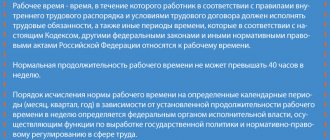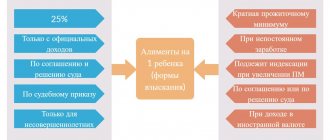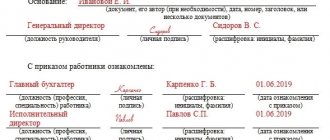Commentary on Article 60.2 of the Labor Code of the Russian Federation
1. Article 60.2, which provides general provisions on combining professions (positions) by an employee, as well as the rule on part-time work, was introduced into the Labor Code of the Russian Federation by Federal Law of June 30, 2006 N 90-FZ.
Previously, the issues of combining were regulated by the provisions of Resolution of the USSR Council of Ministers of December 4, 1981 N 1145 “On the procedure and conditions for combining professions (positions)”, which completely lost force in 2009.
From the provisions of the commented article it follows that combination is the performance by an employee, with his written consent, during the established duration of the working day (shift) on behalf of additional work in another or the same profession (position) along with the work specified in the employment contract, for additional payment.
Additional work assigned to an employee in another profession (position) can be carried out by combining professions (positions).
Additional work in the same profession (position) can be carried out by expanding service areas and increasing the volume of work.
At the same time, in the current Russian labor legislation there are no definitions of the concepts “expansion of service areas” and “increase in the volume of work performed.”
These concepts were provided for in the instructions of the All-Russian Central Council of Trade Unions, the Ministry of Finance of the USSR, the State Committee for Labor of the USSR dated May 14, 1982 N 53-VL “On the application of the Resolution of the Council of Ministers of the USSR dated December 4, 1981 N 1145 “On the procedure and conditions for combining professions (positions)”, which was lost strength.
To perform the duties of a temporarily absent employee without release from work specified in the employment contract, the employee may be assigned additional work in either a different or the same profession (position).
The period during which the employee will perform additional work, its content and volume are established by the employer with the written consent of the employee.
2. Part 4 of the commented article establishes the employee’s right to refuse to perform additional work ahead of schedule. In turn, the employer has the right to cancel the order to carry it out ahead of schedule.
The employer and employee are required to notify the other party in writing of their intention to exercise these rights no later than three working days in advance.
It should be noted that, as correctly noted by Ershova E.A., the current labor legislation does not provide for provisions that should be followed when formalizing part-time labor relations. At the same time, Ershova E.A. concludes that there is a gap in the labor legislation, and by analogy with the law, when registering part-time work, perhaps one should turn to the provisions of Art. 60.1 of the Labor Code of the Russian Federation, regulating part-time labor relations.
________________ Ershova E.A. Labor law in Russia. M.: Statute, 2007. P.206.
At the same time, other authors highlight the features of the design of part-time and part-time work as signs of certain labor relations.
So, for example, when pointing out the differences between part-time and part-time work, Obukhova T. indicates that with part-time work, an employment contract is drawn up, and with combination work, registration occurs by concluding an additional agreement to the existing employment contract.
________________ Obukhova T. Current issues of combining and part-time positions // Budgetary organizations: accounting and taxation. 2012. N 8. P.49-58.
Thus, it is necessary to highlight several distinctive features of combination: - firstly, work on combining professions (positions) is carried out exclusively with the written consent of the employee; - secondly, when combined, additional work is carried out within the normal duration of the working day (work shift).
Combination involves the employee performing labor functions for the same employer.
This can be either additional work in another profession (position), or fulfilling the duties of a temporarily absent employee without release from his main job.
Additional work is carried out in a different or the same profession (position) for additional pay.
Relations regarding wages when combining professions (positions), expanding service areas, increasing the volume of work or performing the duties of a temporarily absent employee without release from work specified in the employment contract are regulated by Art. 151 Labor Code of the Russian Federation.
When concluding an employment contract with an employee for whom the combination is established upon hiring, the parties must include in the employment contract conditions on the combination of professions (positions), the period for performing additional work, the content of the labor function for working in another position (profession), as well as the amount surcharges for combination.
If an employment contract has previously been concluded with the employee, these conditions must be included in an additional agreement, which is an integral part of the employment contract.
Labor legislation does not contain special rules regulating the registration of an employee’s consent to perform part-time work. Therefore, by signing an additional agreement on part-time work, the employee thereby expresses his consent.
Based on the concluded additional agreement to the employment contract, a corresponding order from the employer is issued. The requirements for making a record of the performance of part-time work in the work book are not established by law.
Other cases
Combination of professions implies the performance by an employee of an organization of official duties in another specialty. For this, he is given a certain additional payment, the amount of which is determined independently by the manager and the citizen. All conditions for the combination are specified in the agreement attached to the contract of employment.
Nevertheless, labor legislation provides for other cases of additional work performed by an employee of an organization for a certain payment. These include:
- increasing the volume of work performed (in this case there is no clear delineation of additional responsibilities, the employee simply takes on the greatest burden for a certain monetary remuneration, for example, instead of one report, he makes two, prepares three accounting statements);
- expansion of the service area - assigning additional responsibilities to a person with a clear division of boundaries (the security guard must guard not only one warehouse, but another one located nearby);
- performance of the duties of an absent subordinate - possible during the latter’s illness, vacation, business trip, while another employee performs his functions and his work, while receiving appropriate monetary remuneration.
Another comment to Art. 60.2 Labor Code of the Russian Federation
1. In contrast to part-time work (see Article 60.1 of the Labor Code and the commentary thereto), the combination of professions (positions) takes place within the framework of one employment contract, and work in the combined profession (position) is carried out within the limits and working hours established by the employment contract . The condition of performing work in two or more professions, specialties or positions is determined by the parties when concluding an employment contract as a condition of the labor function assigned to the employee, or subsequently.
By virtue of Art. 57 of the Labor Code of the Russian Federation, the condition for expanding the labor function by combining professions (positions) can be determined by an annex to the employment contract or by a separate agreement of the parties, concluded in writing, which are an integral part of the employment contract. When the parties agree on the conditions for combining professions (positions) and fixing it in the established form, the parties can establish the period of such combination and the procedure for performing work in the combined profession (specialty) or position.
2. According to its legal regime, the condition of combining professions (positions) is accompanied by a condition of expanding the service area or increasing the volume of work performed. This condition is established after the parties agree on the terms of the employee’s labor function and can be permanent or temporary (in particular, in the form of assigning the duties of a temporarily absent employee without release from the main job specified in the employment contract).
3. Despite the fact that the condition of combining professions (positions) or expanding the service area or increasing the volume of work performed is a condition that forms the content of the employment contract as an agreement of the parties, the legislator assumes the possibility of unilateral refusal of this condition. Such refusal is carried out in writing by warning the interested party to the opposing party no later than three working days. An employee may express his refusal to combine professions (positions) or expand the service area or the scope of work performed in the form of a corresponding written statement, the employer - by issuing an order (instruction).
What does it mean
An employee's performance of work not provided for in the employment contract under another staff position for additional pay during official time is a combination of professions. For example, a person works as a foreman at a construction site; in addition, he transports cement and tools for official activities on a dump truck. He does all this during his working hours. This means that a person combines two professions at once: a construction foreman and a driver.
In order for an employee of an organization to begin performing duties in another specialty, this issue must be resolved with him in writing. As a rule, a proposal to combine two professions always comes from the manager. If an employee agrees to such working conditions with additional pay, then the HR specialist prepares a corresponding order and an additional agreement to the employment contract.
Important
As a rule, the assignment of additional responsibilities to an employee performing official activities in a given organization, but in a different position, is possible only with his written consent. Therefore, if a subordinate is against combining professions, then the manager does not have the right to force the latter to perform work forcibly. This would be against the law.
In addition, an employee can always refuse to combine several professions ahead of schedule. In turn, the manager can cancel his assignment ahead of schedule by warning his subordinate three days in advance.
What is the difference
Very often, many citizens confuse combining professions with part-time work and vice versa. So, here you need to see a clear difference between the two concepts.
Part-time work is understood as the performance by an employee of duties in another position in his free time from his main job. The duration cannot be more than four hours a day. In turn, performing additional duties during official time is a combination of professions (positions). The Labor Code of the Russian Federation provides for certain remuneration in this case.
Therefore, these two concepts are completely different from each other. Because the whole point of combining professions is that the additional work should be carried out by the employee during his official time. In addition, the subordinate receives a certain monetary reward for this.
While part-time work involves a citizen performing official duties at the same or another enterprise in his free time from his main activity. In this case, an employment contract is concluded with a person, not an agreement.
Decor
In order for a boss to assign additional work to a subordinate, the latter must give his consent to this. As a rule, it is drawn up in writing. The application must be written as follows:
To the head of ________________ (company name)
from a subordinate ___________________ (personal data)
holding the position __________________ (specify)
Statement
I agree to combine the positions of _________________ (write which ones) with ___ (date).
Date ______________
Employee signature ____________________
After drawing up this document, the manager must prepare the appropriate agreement for the employment contract and issue an order. Registration of combination of professions is always done only in writing. In addition, the employee is given a certain additional payment for this. The procedure for combining professions must be followed by the head of the organization. Therefore, after the employee writes a statement, the boss must prepare an additional agreement to the contract. This document is compiled as follows:
Additional agreement to the employment contract _____ dated (specify the date of conclusion)
Date ______ City __________
_____________ (name of organization), represented by the manager ___________, acting on the basis of (specify document) and the employee of the enterprise __________ (data), entered into an agreement on the following:
1. Make changes to the employment contract No. ___ dated (specify date), namely, add the following clause:
The employee is assigned to perform additional work in the position ____. The subordinate will perform the assigned duties during his official time. For performing additional work, the latter will receive 100% payment. The combination of professions is assigned to the employee ________ from (specify date).
Signatures of the parties:
Worker ________________
Head of the enterprise _______________
This document must be prepared in two copies. One is given to the employee, and the other remains with the boss, and then is transferred to the personnel department and filed in a personal file.







